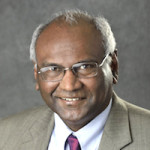A Brief Colonial History Of Ceylon(SriLanka)
Sri Lanka: One Island Two Nations
A Brief Colonial History Of Ceylon(SriLanka)
Sri Lanka: One Island Two Nations
(Full Story)
Search This Blog
Back to 500BC.
==========================
Thiranjala Weerasinghe sj.- One Island Two Nations
?????????????????????????????????????????????????Friday, February 3, 2017
The Donoughmore Heritage – Roll Back On Equality & The Challenge Of Identity Politics

By S. Ratnajeevan H. Hoole –February 2, 2017
This paper celebrates the 85 years of universal suffrage in
Sri Lanka that came with the Donoughmore Constitution in 1931 with its
inherent idea of equality of all persons. This constitution in turn led
to the Soulbury Constitution of 1946 which entrenched equality of all
citizens and through Article 29 prohibited Parliament from enacting laws
that did not treat citizens equally.
However, with a view to reinforcing that highpoint in our
achievements, this paper then focuses on how electoral politics has the
weakness of candidates having to appeal to differences in identity to
outbid others for votes and win. Thus our high achievements were rolled
back in the 1972 republican constitution which did away with Article 29
and favoured Buddhism, making lesser citizens of those who are not
Buddhists. This regressive change was not corrected in the 1978
constitution that followed and demeaned our democracy further with
authoritarian elements. The best part of our colonial heritage was
annulled by our own indigenous mismanagement.
As a new constitution is being drafted, these are matters to
be thought about and learnt from to ensure that we return to our
highpoint as a democratic nation.
The Legacy of Equality and Human Rights
The world is getting to be a better place. As Time put it,
Human rights is the legacy of the twentieth century. Our stronger
democratic institutions and our human rights legacy strengthen each
other.
This march towards an increasingly better democracy came to us in Sri
Lanka with the Donoughmore constitution which for the first time gave us
Sri Lankans “one-man, one vote.” Whether man or woman, whether
Sinhalese, Tamil or Muslim, whether Buddhist, Hindu or Muslim or
something else, whether high caste or not, whether we liked a member of a
group or not, one was entitled to one (and only one) vote. Intrinsic to
this was the revolutionary idea in our feudal society that we are all
equal. We had universal adult franchise to choose our representatives
and take us into a modern egalitarian society.
The Commissioners were Lord Donoughmore an Irish Peer (Chairman), and
Dr. Drummond-Shiels and Frances Butler, both MPs. Donoughmore is said to
have been a champion for women’s right to university education. Sir
Matthew Nathan served during 1927-1928.
Roll-back on Equality
Universal suffrage and one-man one vote put Sri Lanka on the threshold
of the new equality between persons making us very proud. Naturally the
1946 Soulbury Constitution that readied us for independence reinforced
the idea of equality of all person through Article 29 which limited the
legislative powers of Parliament. Article 29 is reproduced here drawing
particular attention to 29(2):
(1) Subject to the provisions of this Order, Parliament shall have power
to make laws for the peace, order and good government of the Island.
(2) No such law shall –
(a) prohibit or restrict the free exercise of any religion; or
(b) make persons of any community or religion liable to disabilities or
restrictions to which persons of other communities or religions are not
made liable; or
(c) confer on persons of any community or religion any privilege or
advantage which is not conferred on persons of other communities or
religions, or
(d) alter the constitution of any religious body except with the consent
of the governing authority of that body, so, however, that in any case
where a religious body is incorporated by law, no such alteration shall
be made except at the request of the governing authority of that body:
That is, no law could confer an advantage or impose a disadvantage
unless it was done to all communities. In addition to this guarantee was
the right to appeal to the Privy Council.

